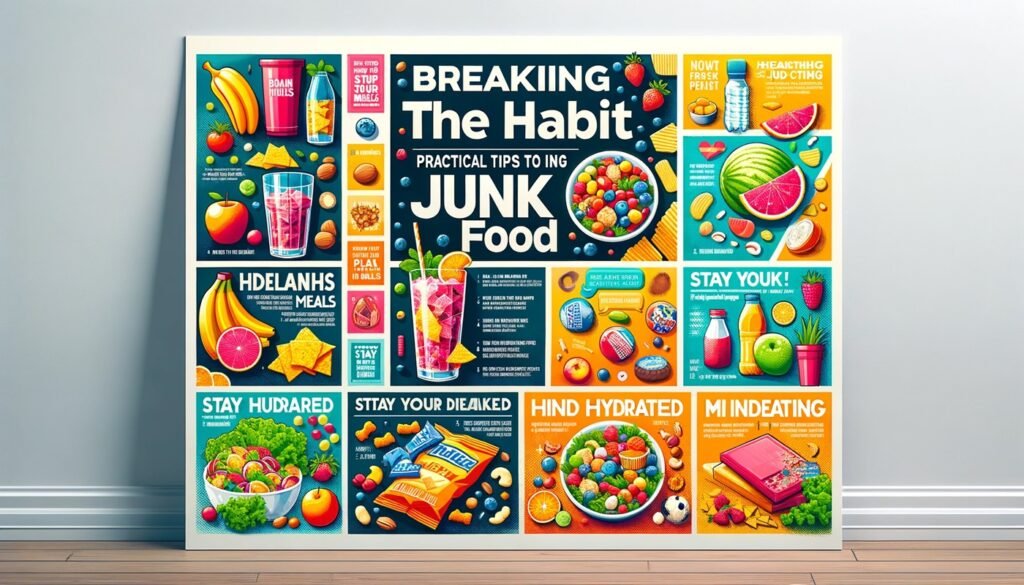
Junk food is a common temptation, offering convenience and indulgence. However, its high calorie, sugar, and fat content can have serious health repercussions. Understanding how to curb cravings and limit junk food consumption is crucial for maintaining optimal health. This blog provides practical tips to help you break free from junk food and make healthier choices.
Contents
Why Is Junk Food Addictive?
Before delving into the tips, it’s important to understand why junk food can be so addictive. These foods are typically high in sugar, fats, and salts, which can trigger pleasure centers in the brain, leading to increased cravings and habitual consumption. Overcoming this cycle requires a conscious, disciplined approach.
Effective Strategies to Reduce Junk Food Consumption
- Understand Your Triggers
- Identify the emotional or environmental cues that lead you to crave junk food. Stress, boredom, social environments, or certain times of the day can be significant triggers.
- Healthy Substitutions
- Replace junk food with healthier alternatives that still satisfy your cravings. For sweets, opt for fruits or yogurt with honey; for salty and crunchy cravings, try nuts or roasted chickpeas.
- Plan Your Meals
- Planning meals can reduce the impulse to reach for convenient junk food. Prepare healthy snacks and meals in advance to ensure you always have good options at hand.
- Stay Hydrated
- Sometimes, what feels like a craving for junk food is actually dehydration. Drink plenty of water throughout the day to help suppress unnecessary snacking.
- Implement a Balanced Diet
- Ensuring your diet includes a balance of macronutrients (proteins, fats, and carbohydrates) and essential micronutrients will reduce cravings and improve overall health.
- Mindful Eating
- Practice being present while eating. Chew slowly and enjoy the flavors of your food, which can prevent overeating and improve your dietary choices.
- Limit Temptations
- Keep junk food out of the house. If it’s not easily accessible, you’re less likely to eat it. Avoid grocery shopping when you’re hungry to prevent impulsive buys.
- Set Realistic Goals
- Completely cutting out all junk food immediately can lead to failure. Set achievable goals and gradually reduce your intake.
Conclusion
Reducing junk food in your diet is a commendable goal that requires commitment and practical strategies. By understanding your triggers and implementing these tips, you can significantly decrease your junk food consumption and make substantial strides towards better health.
FAQs about Stopping Junk Food Consumption
Q: How quickly should I expect to see health improvements after stopping junk food?
A: Improvements can be noticed within a few weeks, such as increased energy levels, better skin condition, and potential weight loss.
Q: Is it okay to eat junk food occasionally?
A: Yes, moderation is key. Allowing yourself an occasional treat can make a strict diet more sustainable.
Q: What are some ways to handle cravings for junk food?
A: Distract yourself with a hobby, exercise, or by drinking water. Often, cravings will pass if given a little time.
Q: Can I eat junk food if I balance it with healthy meals?
A: While balancing is better than not, it’s healthiest to limit junk food as much as possible and opt for nutritious alternatives that satisfy similar cravings.